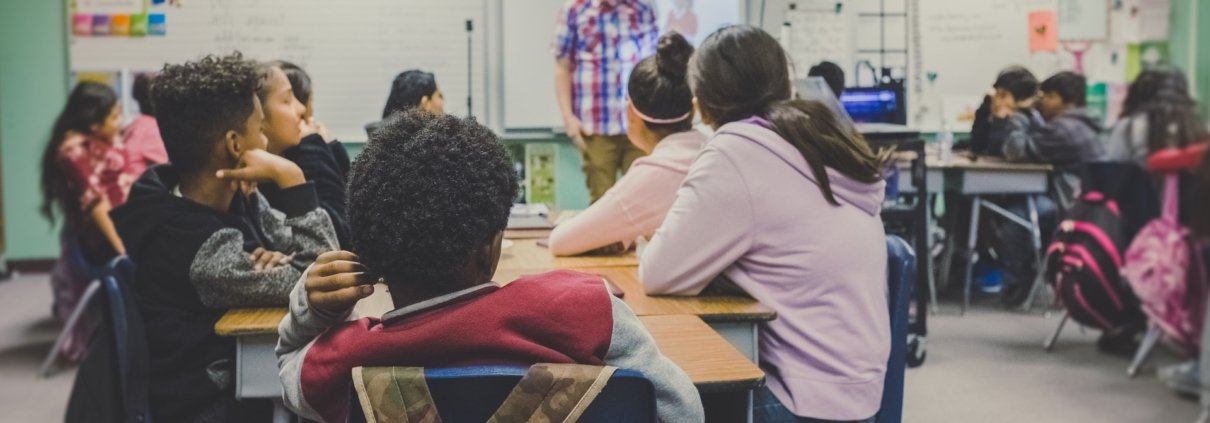Brian’s Favorite Class to Teach
I took “World Writers” as an 8th grade student at Grace Church School in 1994-1995, and it was critical in launching me into a career writing and teaching literature.
This is my 14th year teaching World Writers. From the beginning, my goals have been consistent: first, to encourage the students to think and write with more analytical precision; second, to spark in them an enthusiasm for reading and the varieties of human experience; and third, to expand their literary horizons in order to help them better be able to form and articulate their unique vision of the world. World Writers creates a community of readers for whom I can facilitate discussion of some of my favorite books, along the way helping students fall in love with reading, writing, and thinking just as I did when I was their age.
The only consistent text year after year is Night, by Elie Wiesel. Night is a masterpiece that chronicles Wiesel’s own experiences as a teenager during the Holocaust. The memoir sets the tone for the class, as it demands a brutal honesty that students build over the first few weeks and then apply to all the other works we read together. World Writers is a serious class, because regardless of the texts that follow Night, we inevitably confront a series of atrocities. In regular rotation are Gwendolyn Brooks’s Maud Martha, Dai Sijie’s Balzac and the Little Chinese Seamstress, Paul Auster’s City of Glass, and Kazuo Ishiguoro’s Never Let Me Go. Over the years, we’ve also read Kitchen, by Banana Yoshimoto; Things Fall Apart, by Chinua Achebe; Dreams of My Father, by Barack Obama; and a variety of stories (Franz Kafka, Eudora Welty, John Cheever) and poetry (Gerard Manley Hopkins, Gwendolyn Brooks, Wisława Szymborska). These works detail all kinds of suffering and loss, and they demand to be confronted with respect for the writers and their subjects. That said, they also demand to be met with joy. That these books exist is a miracle, and it is as important that we laugh, question, argue, tease, demand, love, and hate, as it is that we empathize. And we give equal weight to authorial decisions as we do to their characters’ lives. We ask how the works are constructed. Which choices result in what effects on the reader. Why an author elected to include this instead of that, in this way instead of that one?
What all the above texts have in common is a perspective the students are unlikely to have encountered outside World Writers. Whether we are delving into the life of a Black girl-then-woman in 1930’s Chicago, a teenager enduring Chinese re-education, or a British clone mined for her internal organs, each text is very different from the next but manages to find the perfect words or phrases for emotions and feeling we’ve all had but have never been able to express. I feel lucky to revisit these works each year with a new set of students ready to think deeply, possibly for the first time, about issues they may have never confronted before.



Leave a Reply
Want to join the discussion?Feel free to contribute!